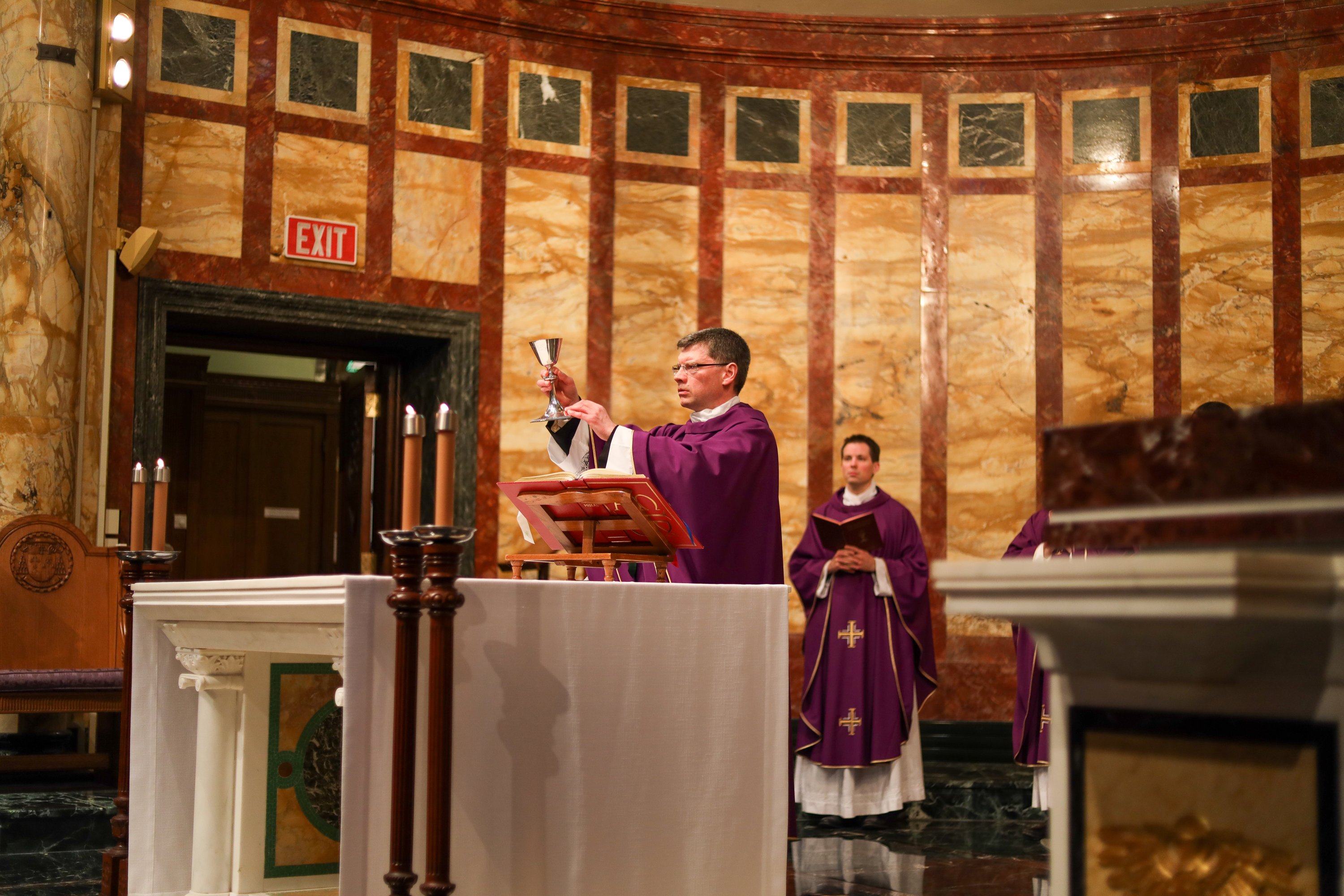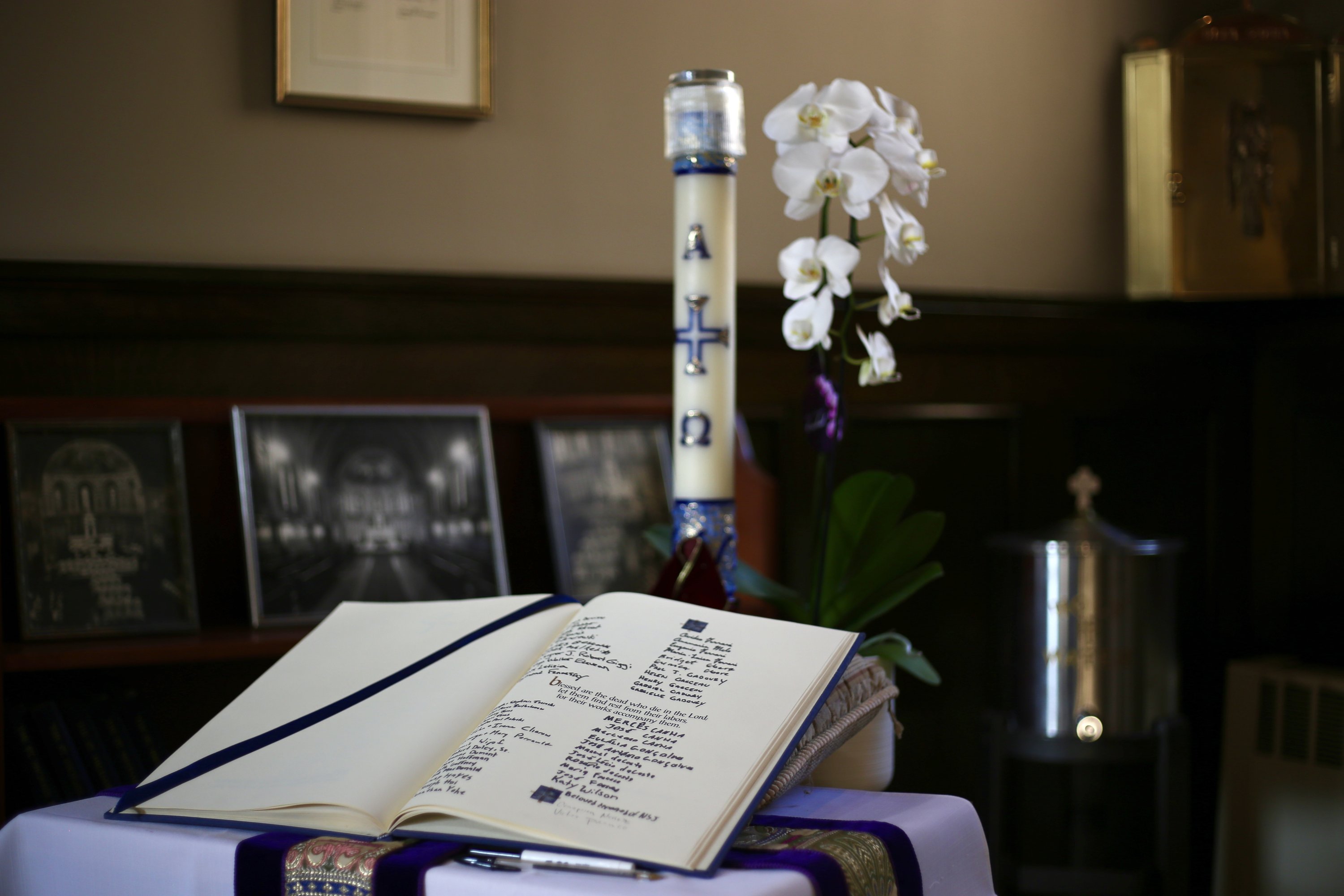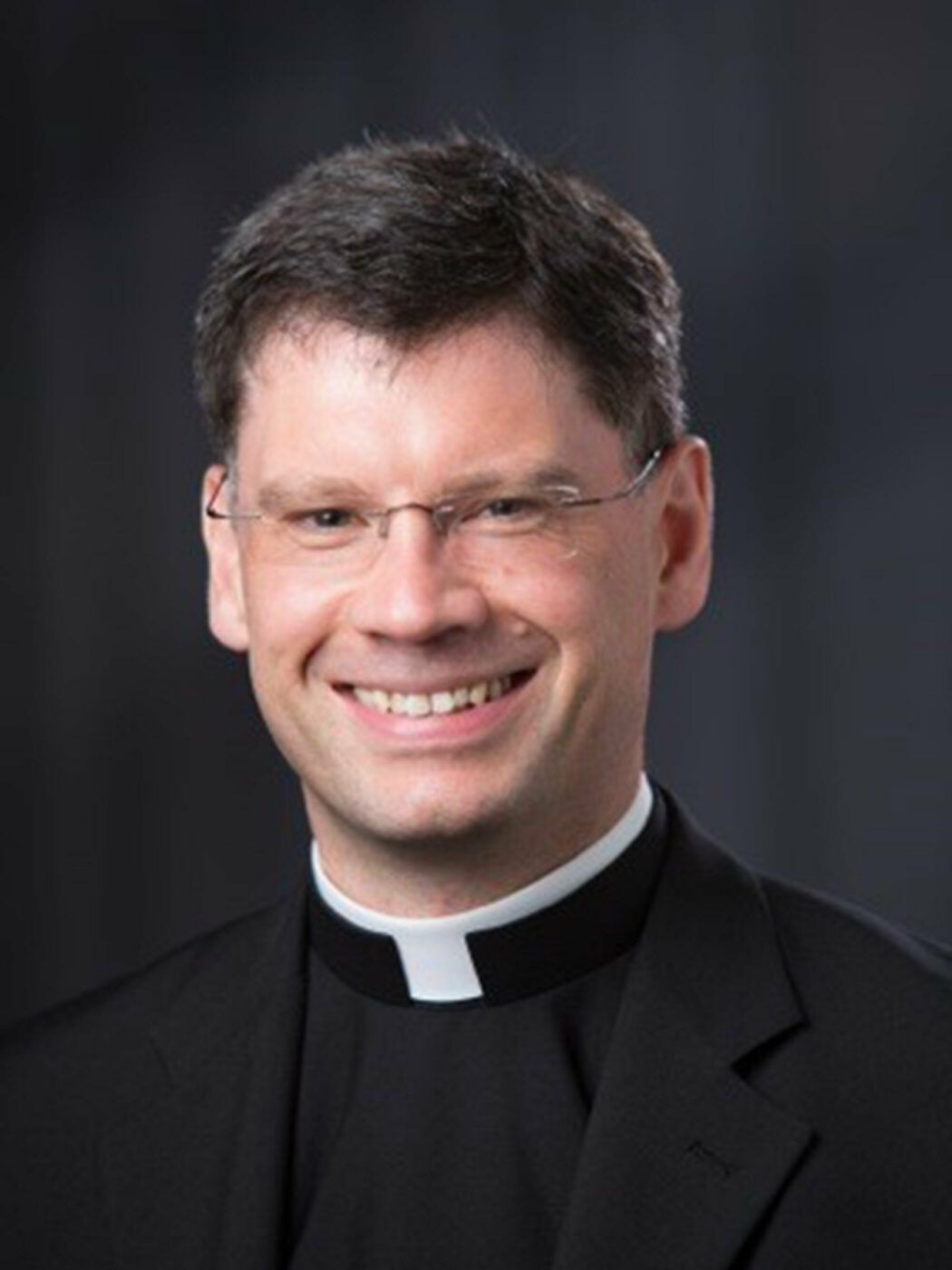A well-loved Protestant preacher related how, on the day his father died, he said his night prayers as usual. He prayed for his father as he always did. His mother overheard his prayer and said, “We must not do that, son. We are not Catholics.” The preacher told how he “immediately felt as if a grill of iron had been lowered between him and his father by his mother’s words.” He knew with deep assurance that she was wrong. Her words “separated him from his father even more severely than death itself had done” (recounted in Peter Kreeft, From Calvinist to Catholic, 140).
God’s Love breaks through the barriers of death. The bonds uniting us are not severed by death. These ties of love and affection continue in Christ, who, through His death and resurrection, overcomes death in us too. Death is a terrible thing. Sometimes it does seem like a grill of iron separating us from those we love. But death has been changed forever by Christ’s saving death. The iron bars have been shattered, the prison opened, the dead set free, and those who mourn are comforted.
When someone dies, we grieve and suffer, but we can help them on their way to God: “It is never too late to touch the heart of another, nor is it ever in vain . . . The souls of the dead receive ‘solace and refreshment’ through the Eucharist, prayer, and almsgiving.” It was always the Church’s conviction that Love “continues beyond the limits of death” (Benedict XVI, Spe Salvi, 48). Saint Monica knew this when she requested, “all I ask is that you remember me at the altar of God, wherever you may be.” This remembrance is primarily in the Eucharistic Sacrifice where the dead are never forgotten; where the blessings of Christ’s sacrifice are applied anew to them—for the Mass is always offered for the living and the dead. To have Holy Mass offered for those who have gone before us is the best way of helping them enter fully into the presence of God. At Mass, we are closest to them.
The readings today are chosen from the rich selection suggested in the lectionary for Masses for the Dead (2 Macc 12:43-45; Phil 3:20-21; John 6:37-40). They remind us that as Jesus came to do the will of the Father, we too are to live for God alone. In the gospel, Jesus says: “I have come, not to do my own will, but the will of Him who sent me.” That will is that Jesus should lose nothing the Father has given Him but raise it up at the last day. He does not want to lose anyone. Jesus takes what is ours to raise it up, and so He purifies and heals us. We become totally ourselves by becoming totally of God. This sometimes-painful journey opens us completely to God, and in this encounter, what is false in us gives way before His Truth and Love.

If we die clinging to what is not of God, He offers yet another opportunity to become totally His and so totally ourselves. If we haven’t fully accepted the perfecting love of God, then His all-consuming charity provides another opportunity—a last act of love done by God for us (St. Catherine of Genoa). This purification is often called purgatory. While the word doesn’t occur in the Bible, the concept does. The benefits of offering sacrifice for the dead are identified in Second Maccabees where Judas Maccabeus took up a collection (Maccabees is a very Catholic book!). He did this so that sacrifices could be offered for those who fell in battle that they might be purified of their sins. In this, Judas Maccabeus acted well. The offering for the dead was praised as “a holy and pious thought” making “atonement for the dead that they might be absolved from their sin” (2 Macc 12:45-46).
Scripture presents the Lord as a “consuming fire.” Our encounter with Him consumes the rubbish and dross of our lives—all that is false and self-deceptive, all that is shallow and hypocritical. Pope Benedict saw this encounter as “the decisive act of judgment”:
Before His gaze all falsehood melts away. This encounter with Him, as it burns us, transforms and frees us, allowing us to become truly ourselves. All that we build during our lives can prove to be mere straw, pure bluster, and it collapses. Yet in the pain of this encounter, when the impurity and sickness of our lives become evident to us, there lies salvation. His gaze, the touch of His heart heals us . . . “as through fire” (1 Cor 3:15) . . . [T]he holy power of His love sears through us like a flame, enabling us to become totally ourselves and thus totally of God (Spe Salvi, 45).
Totally of God and so totally ourselves! We become ourselves fully only by letting Him purify us. This happens in this world or the next (Matt 12:32). Much better for it to happen here during our earthly lives, especially through acceptance of the trials permitted by God. These are sometimes difficult, but our acceptance of them is the greatest testimony of love for God.
As we pray for the souls of those who have died, we are comforted that the ties of affection uniting us in this life are not cruelly severed in death. In Christ and in His Body, the Church, that love continues in an exchange of spiritual goods. We are refashioned in the will of Christ and His Father. We are purified in love. We become truly ourselves by becoming fully of God. Totally of God and so totally ourselves!



